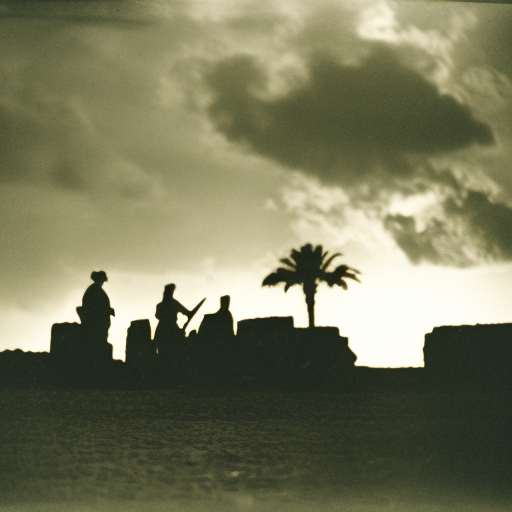The Punic Wars
The Punic Wars were a series of three wars fought between Rome and Carthage from 264 BC to 146 BC. These wars were significant in shaping the course of Western civilization and establishing Rome as the dominant power in the Mediterranean.
First Punic War (264 BC – 241 BC)
The First Punic War began when Rome and Carthage clashed over control of Sicily. Rome, with its superior land forces, struggled to match Carthage’s naval power. However, Rome adapted by constructing a fleet and eventually defeated Carthage in a series of naval battles. In 241 BC, Carthage signed a peace treaty, ceding Sicily to Rome and paying a large indemnity.
Second Punic War (218 BC – 201 BC)
The Second Punic War was sparked by the Carthaginian general Hannibal’s audacious invasion of Italy. Hannibal won several major battles, including the famous Battle of Cannae, where he inflicted a devastating defeat on the Romans. However, Rome’s resilience and ability to raise new armies allowed them to continue the fight. The turning point came when Roman general Scipio Africanus launched a counter-invasion of Carthage’s homeland in North Africa. In 202 BC, Scipio decisively defeated Hannibal at the Battle of Zama, forcing Carthage to surrender. The peace treaty that followed stripped Carthage of its overseas territories and imposed a heavy indemnity.
Third Punic War (149 BC – 146 BC)
The Third Punic War was the result of growing tensions between Rome and Carthage. Rome accused Carthage of violating the terms of the peace treaty and demanded their complete surrender. Carthage, weakened and desperate, resisted Roman demands. In 146 BC, Rome launched a full-scale assault on Carthage, besieging the city for three years. When the city finally fell, Rome destroyed it, leaving nothing but ruins. The defeat of Carthage marked the end of the Punic Wars and solidified Rome’s dominance in the Mediterranean.
Impact of the Punic Wars
The Punic Wars had far-reaching consequences. Rome emerged as the undisputed power in the Mediterranean, establishing an empire that would last for centuries. The wars also highlighted Rome’s military prowess and its ability to adapt to new challenges. The defeat of Carthage allowed Rome to expand its territories and gain control over important trade routes.
The wars had a profound impact on Carthage as well. The once-great city was reduced to rubble, and its people were sold into slavery. The destruction of Carthage served as a warning to other cities and states that defying Rome would have severe consequences.
The Punic Wars also had cultural and economic implications. The influx of wealth from conquered territories fueled Rome’s growth and led to increased social and economic inequality. The wars also brought Greek culture to Rome, as the Romans adopted many aspects of Greek civilization.
Furthermore, the Punic Wars marked a shift in Rome’s foreign policy. Rome went from being a regional power to a global empire, expanding its influence across the Mediterranean and beyond. The wars also set the stage for future conflicts, such as the wars against Macedonia and the eventual fall of the Roman Republic.
In conclusion, the Punic Wars were a series of conflicts that shaped the course of Western civilization. Rome’s victory over Carthage established its dominance in the Mediterranean and paved the way for the Roman Empire. The wars had far-reaching consequences, both politically and culturally, and their impact can still be felt today.












